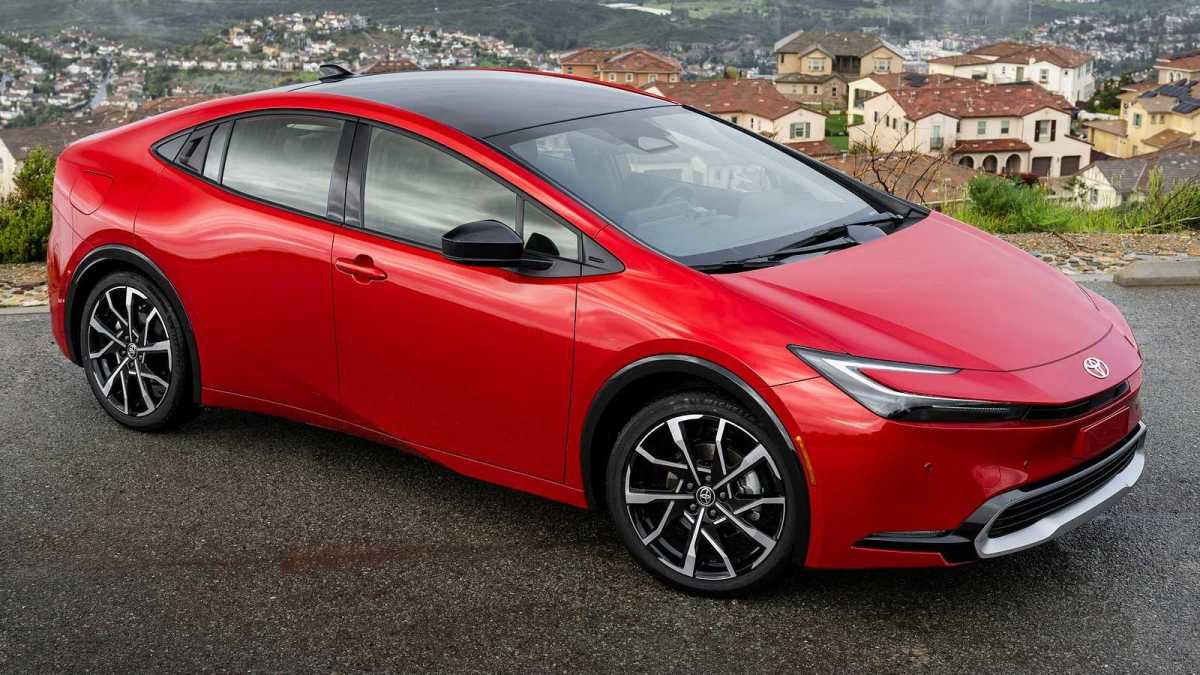And the Toyota Prius continues to play a crucial role in strengthening Toyota’s standing in sustainability perceptions. The Prius, first introduced in 1997, was one of the first mass-produced hybrid vehicles, and has since become synonymous with eco-friendly driving.
The Prius has helped Toyota solidify its reputation as a pioneer in sustainable transportation. The vehicle’s innovative hybrid technology, which combines a traditional gasoline engine with an electric motor, has proven to be incredibly successful in reducing fuel consumption and emissions. As a result, the Prius has consistently been a top choice for environmentally-conscious consumers.
In addition to its advanced hybrid system, the Prius has also been a trailblazer in terms of design. Its distinctive aerodynamic shape not only contributes to its fuel efficiency, but also sends a clear message about its commitment to sustainability. The Prius has become an iconic symbol of eco-friendly driving, and its influence has played a significant role in shaping public perceptions of Toyota as a leader in sustainability.
Furthermore, Toyota’s commitment to sustainability extends beyond just the Prius. The company has made significant strides in developing fuel-efficient and low-emission vehicles across its entire product lineup. This includes the introduction of hybrid versions of popular models such as the Camry and the RAV4, as well as the development of hydrogen fuel cell technology with the Mirai. These efforts have helped position Toyota as a frontrunner in the transition to a more sustainable automotive industry.
The company’s dedication to sustainability has also been evident in its manufacturing processes. Toyota has implemented numerous initiatives to reduce waste, conserve resources, and minimize its environmental impact. This includes the implementation of energy-efficient technologies in its production facilities, as well as the promotion of recycling and waste reduction practices. These efforts have not only helped Toyota reduce its carbon footprint, but have also set a standard for responsible and sustainable manufacturing practices in the industry.
Beyond its products and manufacturing processes, Toyota has also prioritized sustainability in its business operations. The company has been a leader in promoting corporate social responsibility, and has actively engaged in initiatives that benefit the environment and local communities. This includes supporting environmental conservation projects, promoting renewable energy use, and contributing to disaster relief efforts. By incorporating sustainability into its overall business strategy, Toyota has been able to demonstrate its commitment to responsible and ethical practices, further enhancing its reputation as a sustainability leader.
In addition to its efforts in product development, manufacturing, and corporate responsibility, Toyota has also been a vocal advocate for sustainability on a global scale. The company has actively participated in international discussions and initiatives aimed at addressing climate change, promoting clean energy, and advancing sustainable transportation. Toyota’s participation in these efforts has not only showcased its leadership in sustainability, but has also contributed to shaping global policies and standards in the automotive and energy sectors.
Looking ahead, Toyota remains committed to pushing the boundaries of sustainability and continuing to lead the way in eco-friendly transportation. The company has set ambitious goals for reducing its environmental impact and advancing sustainable technologies, including plans to expand its lineup of electric and hydrogen fuel cell vehicles. With its ongoing dedication to innovation and sustainability, Toyota is poised to maintain its strong standing in sustainability perceptions for years to come.
In conclusion, the Prius has played a significant role in bolstering Toyota’s reputation as a sustainability leader. Its innovative hybrid technology, iconic design, and widespread popularity have all contributed to shaping public perceptions of Toyota as a pioneer in eco-friendly driving. Additionally, Toyota’s broader initiatives in product development, manufacturing, corporate responsibility, and global advocacy have further solidified its position as a frontrunner in the transition to a more sustainable automotive industry. As the company continues to push for innovation and sustainability, it is well-positioned to maintain its strong standing in sustainability perceptions and contribute to the advancement of a more sustainable future.
